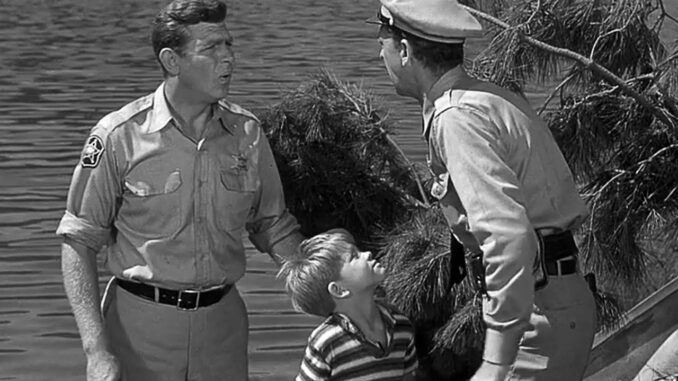
In the grand theater of conflict, where power often flaunts its uniformed might, there occasionally steps onto the stage a figure whose only weapon is the keen edge of his intellect. This is Andy, a personification of the quiet, unassuming brilliance that consistently proves more formidable than the bluster and resources of the "Big Guns." The narrative of "Brains Over Badges: Andy Outsmarts the Big Guns" is not merely a tale of a clever individual besting authority; it is a profound affirmation of wit's triumph over might, of strategic insight over sheer force, and of ingenuity over institutional inertia.
The "Big Guns" are, by nature, imposing. They represent established power, whether it be a monolithic corporation, a government agency, or a well-resourced criminal enterprise. They operate with an air of invincibility, relying on vast networks, conventional protocols, and the sheer weight of their resources. Their tactics are often direct, sometimes brutal, and typically predictable. They possess the badges – symbols of their authority and reach – and the literal big guns – the tools of their enforcement. Yet, this very reliance on overt strength becomes their Achilles' heel. They are accustomed to overwhelming resistance, to pushing through obstacles with brute force. Their blind spot lies in their inability to conceive of a challenge that doesn't operate within their established rules, that doesn't respond to their usual pressures.
Enter Andy. Andy doesn't possess badges, nor does he wield big guns. His arsenal is invisible: a sharp mind, an observant eye, an uncanny ability to connect disparate pieces of information, and an unwavering patience. He operates not from a position of power, but from a vantage point of perception. Andy understands human nature, the intricacies of systems, and the subtle dance of cause and effect. He knows that true leverage isn't always found in overwhelming force, but often in identifying the single, critical pressure point – the overlooked detail, the psychological quirk, the procedural loophole – that can unravel an entire, seemingly impenetrable edifice.
Consider the corporate espionage scenario. The "Big Guns" might be a conglomerate with legions of lawyers, market analysts, and security personnel, intent on crushing a smaller, innovative startup. Andy, perhaps the head of that startup or a whistleblower within the behemoth, isn't going to engage in a head-on legal battle he can't afford. Instead, he observes. He notices the corporation's overreliance on a single, insecure data pipeline; he discerns a pattern of unethical, though legally ambiguous, practices in their supply chain; or he simply identifies a flaw in their core product that their immense bureaucracy has overlooked. Andy doesn't leak secrets or engage in sabotage; he crafts a narrative, meticulously gathers irrefutable evidence, and releases it strategically – perhaps to an industry watchdog, a key investor, or directly to the public through a well-timed, undeniable report. The "Big Guns," caught flat-footed, find their immense resources suddenly irrelevant against the truth, their reputation in tatters, and their operational integrity compromised by an adversary who never fired a shot, but merely shone a light.
Or imagine a more high-stakes scenario: Andy is an ordinary citizen caught in the crosshairs of an overzealous, highly resourced agency that has made a mistake. They have the authority, the surveillance capabilities, and the manpower to track him relentlessly. Andy, understanding their operational logic – their reliance on patterns, their protocols for pursuit, their assumptions about escape routes – doesn't run wildly. He doesn't fight. Instead, he manipulates their very framework. He might leave a series of misleading digital breadcrumbs that divert their focus to a non-existent target; he might subtly alter his routine, not to evade, but to draw them into a location where their own regulations or equipment become a liability; or he might, with almost theatrical precision, use their own public narrative against them, exposing their hubris or procedural flaws in a way that forces them to retreat to save face, rather than capture him. He doesn't beat them with strength; he defeats them by demonstrating their own weakness, by forcing them to choose between their mission and their image, or between their power and their rules.
Ultimately, "Brains Over Badges" is a testament to the enduring power of the human mind. The "Big Guns" often mistake control for understanding, and resources for wisdom. They operate on the principle that if you throw enough weight at a problem, it will eventually yield. Andy, however, understands that the most effective solution is rarely the most forceful one. He knows that true power lies not in the ability to dominate, but in the capacity to discern, to adapt, and to innovate. His victories are not loud explosions, but quiet implosions, engineered with surgical precision. In a world often dazzled by displays of overt strength, Andy reminds us that the greatest force is often the one that cannot be seen, cannot be touched, and cannot be countered by conventional means – the power of pure, unadulterated intellect. He is the eternal underdog who, with a twinkle in his eye and a plan in his mind, consistently outsmarts the big guns and leaves them wondering what hit them.